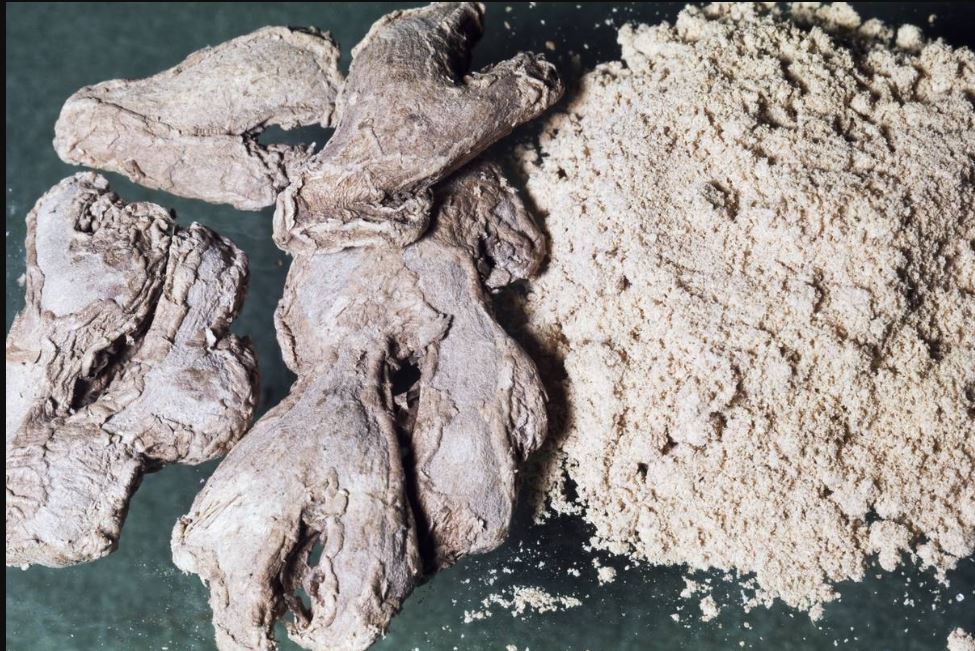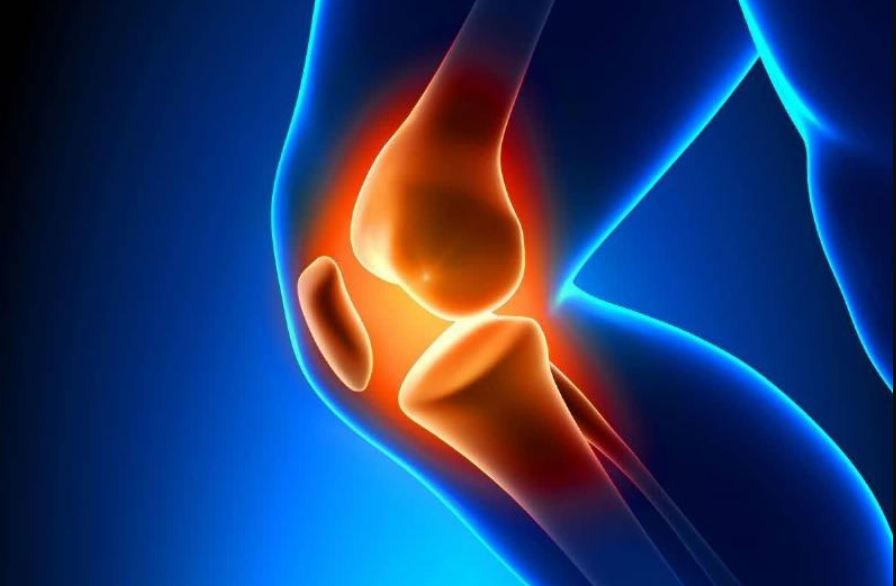Eat Ginger Every Day To Reap These Health Benefits
Eat Ginger Every Day To Reap These Health Benefits – Since ancient times, ginger has been utilized both for flavor and for therapeutic purposes. 2.8 million tons of ginger were produced in 2018 alone. How does ginger affect your body, though? Ginger can protect the brain, prevent disease, and treat nausea in addition to other conditions. If you regularly consume ginger, your body experiences these effects.
Ginger Has Been Medicinal For Thousands Of Years

The early uses of ginger were in southern China. The Middle East, the Mediterranean, India, western Asia, and eventually Europe were all reached by trade from there.
Ginger has a long history of being used as a remedy. It appears that Confucius consumed it with each meal. A pound in 14th-century England was equivalent to a herd of sheep in price! But why was it worth so much?
The Ancients Knew Of Its Healing Properties

The ancients mainly used ginger to preserve meat, but they also knew of its healing properties. According to 2015 research, Iranian traditional medicine used it to improve digestive health and memory.
These medicinal benefits overlapped with spiritual. For instance, the Austronesian peoples used ginger to protect ships against spirits. But many of ginger’s healing associations ended up being true.
How much of the ancient’s uses were scientifically accurate? Stay tuned to find out.
How Do Antioxidants Help?

Antioxidants, according to Harvard Health Publishing, are any substances that neutralize free radicals. Since free radicals are deficient in electrons, they harm DNA and cell membranes by stealing their electrons.
These electrons are provided by antioxidants, preventing free radical damage. Ginger has a high antioxidant content, according to a 2004 study published in Biofactors.
As An Anti-Inflammatory, Ginger Might Prevent Diseases

The body’s natural response to disease and injuries is inflammation. Vanderbilt University researchers claimed that while inflammation might be beneficial, it can also kill too many cells. Hormones, insulin, and adipose tissue can all be affected by excessive inflammation.
Chronic, low levels of inflammation over time can be a factor in a wide range of illnesses. Ginger’s anti-inflammatory qualities work to combat this.
It Might Even Lower The Risk Of Chronic Diseases

Because free radicals and chronic inflammation contribute to a variety of diseases, ginger can counteract this. In 2016, a study in Advances in Experimental Medicine and Biology concluded that gingerol might prevent chronic diseases.
Studies have linked ginger to treating diabetes, coronary heart disease, fatty liver disease, and others. Researchers saw evidence of that in a pool of 4,628 participants.
Up next: why people used ginger to preserve raw meat.
Eat It To Relieve Nausea

As the ancients predicted, ginger is highly effective against nausea. Several studies have confirmed that nausea can soothe an upset stomach.
The British Journal of Anaesthesia reported that ginger can aid motion sickness, morning sickness, and chemotherapy-induced nausea. However, it cannot stop vomiting episodes. Even ginger tea can alleviate stomach upset.
Cook With Ginger For Chronic Indigestion

Chronic indigestion, which is consistent pain in the upper part of the stomach, usually results from delaying emptying of the stomach. Ginger can speed up stomach emptying, according to 2019 research in Food Science & Nutrition.
In 2011, study participants with functional dyspepsia (indigestion with no known cause) ate ginger before soup. They had less stomach discomfort afterward.
Ginger Inhibits The Growth Of Bacteria

Why did ginger save meat from spoiling? According to study published in PLoS ONE in 2015, ginger extract prevents bacteria from growing.
Ginger has antibacterial properties that can even inhibit hazardous germs like Salmonella typhi, Bacillus subtilis, and E. coli. While ginger cannot help you eat raw meat, it can help you stay healthy.
Soon, you’ll see what happens to blood pressure if you eat ginger daily.
It Really Can Protect Memory And Fight Alzheimer’s

Remember the ancient Iranian remedy of using ginger for memory? There is some evidence for that. In 2012, an animal study suggested that ginger could delay the onset of Alzheimer’s.
According to research in Drug Design, Development, and Therapy, ginger alleviates inflammation in the brain. This inflammation can gradually degrade the brain over time.
In Fact, It Sharpens Your Mind Overall

Even if you do not have a family history of dementia, your brain can still benefit from ginger. In 2012, researchers tested the cognitive function of women who ate daily doses of ginger extract.
After two months, the participants had faster reaction times and better working memory. This means that ginger can enhance your brain.
If You Eat It Daily, Your Blood Pressure Might Improve

In 2017, a study in Nutrition examined people who ate ginger every day. Researchers found that ginger dilates blood vessels, which reduces hypertension.
Hypertension, better known as high blood pressure, can contribute to heart disease, metabolic syndrome, stroke, kidney disease, memory failure, and dementia. If you take care of your blood pressure, your risk of these conditions will be much lower.
Coming up: the positive effects ginger has on cholesterol.
Ginger Is Anti-Diabetes

People who have or are at risk of having diabetes can benefit from ginger. In 2015, researchers reported that ginger can drastically reduce blood sugar.
Another study in Planta Medica found that ginger transports sugar into muscle cells. Usually, insulin does this, but ginger compounds can do it without insulin. This makes ginger root especially healthy for diabetics.
However, People On Diabetes Medicine Should Be Wary

Beware: ginger does not interact well with certain diabetes medications. Beta-blockers, anticoagulants, and insulin medications might produce side effects with ginger, according to NDTV.
Some diabetics can eat a moderate amount of ginger (less than four grams) safely. It might even help some treatments. If you’re worried, consult a medical professional.
It Also Lowers Harmful Cholesterol

The body produces two types of cholesterol: healthy HDL cholesterol, and unhealthy LDL. Ginger lowers LDL cholesterol, according to a 2018 study in Clinical & Medical Biochemistry.
During this study, participants ate five grams of ginger paste daily and had over 17% less cholesterol after three months. Less LDL cholesterol means a lower risk of heart disease and stroke.
Soon, you’ll see how ginger might soothe joint pain….
Ginger Might Aid Weight Loss

There is some evidence that ginger can speed up weight loss. In 2015, a study on 80 obese participants noted that they lost weight while eating ginger.
Not only that, but the participants had a lower BMI, blood insulin levels, and fat. Granted, the participants consumed a high dose of two grams every day. But even moderate ginger consumption might help.
If You Want To Use Fresh Ginger…

To use fresh ginger, you’ll want to remove the skin first. You don’t have to use a knife; the edge of a teaspoon is enough to peel off the skin. Chop off extra hard tips with a knife.
After you peel the ginger, chop it into fine pieces. Since ginger is fibrous, it works especially well in pastes and sauces.
Ginger Could Alleviate Arthritis Joint Pain

ADVERTISEMENT
Ginger can alleviate joint pain, especially symptoms of osteoporosis. In 2001, research in Arthritis and Rheumatism found that patients had less knee pain after eating ginger consistently.
According to Versus Arthritis, ginger reduces the number of chemicals that cause inflammation. As joint inflammation grows, it becomes more painful. Granted, ginger is not a replacement for pain medication.
But Pregnant Women Might Get Side Effects From Ginger

Women can eat ginger during pregnancy, but they must be careful. According to gynecologist and fertility specialist Dr. Bandita Sinha, “ginger should not be consumed in excess amounts.”
Ginger can prompt bleeding, which might increase the risk of miscarriages. Women with a history of miscarriage or blood clotting should be especially careful.
It Can Reduce Menstrual Pain

People who experience menstrual cramps might appreciate a ginger remedy. During a 2009 study, 150 women took either ginger or NSAIDs. Ginger reduced pain as effectively as ibuprofen.
Ginger contains an anti-inflammatory enzyme called zingibain that represses the chemical prostaglandins. This chemical is responsible for uterus walls tightening, which is the main cause of cramps.
Because Of This, Ginger Increases Immunity

Because ginger is an anti-bacterial and anti-viral, it can strengthen your immune system. The ancients often used ginger to guard against disease, which science has since supported.
After examining 61 studies, researchers concluded that ginger “can prevent various cancers, angiogenesis, and metastasis.” In short, people are less likely to get sick when they eat ginger consistently.
In conclotion
Since ancient times, ginger has been used both as a flavoring and a medicine. 2.8 million tons of ginger were produced just in 2018. But what benefits does ginger have for your body? Ginger can prevent illnesses, protect the brain, and stop the spread of bacteria in addition to treating nausea. If you regularly consume ginger, your body experiences the following.




